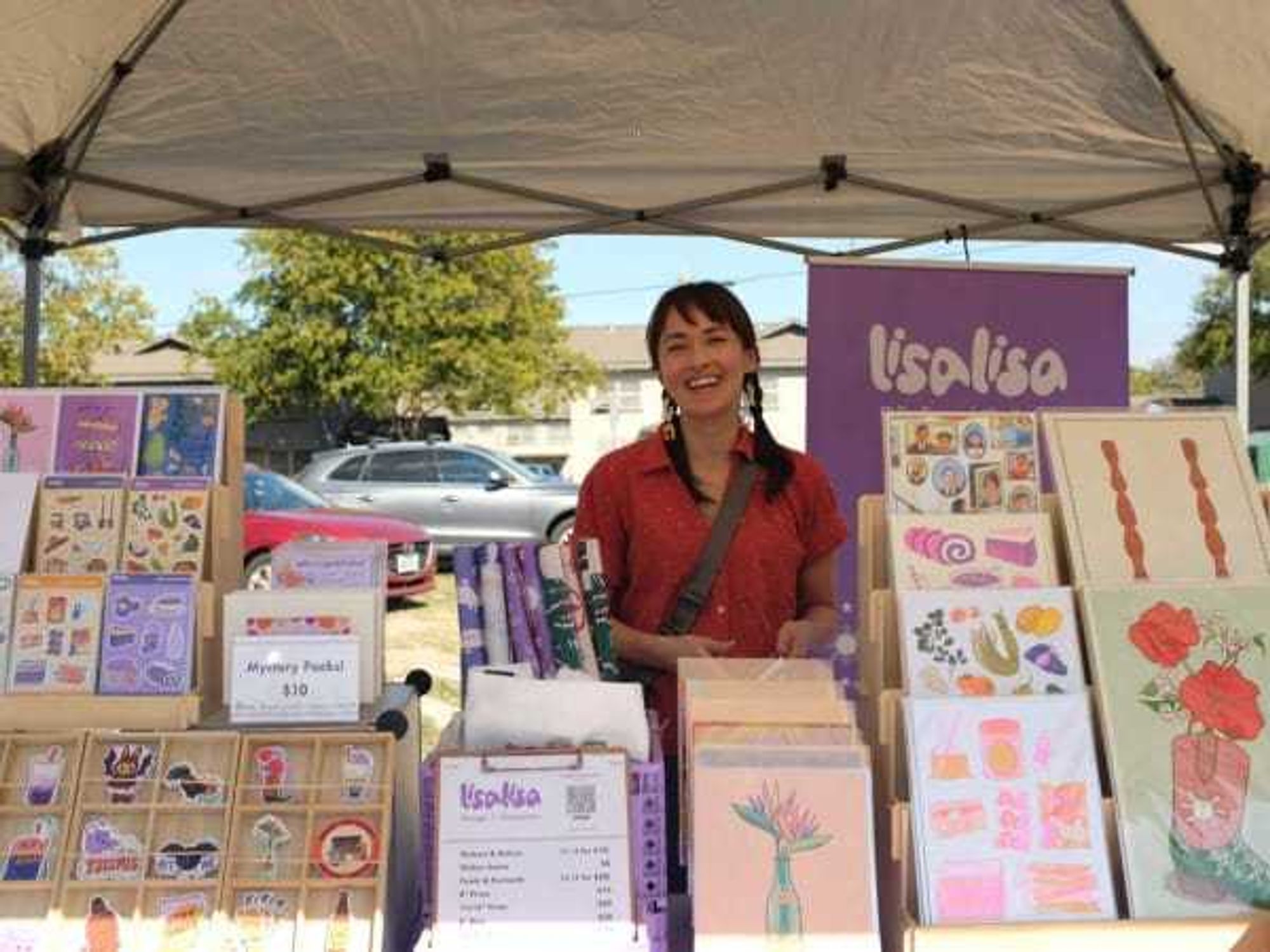One Night Stand-up
Sarah Silverman chooses strong comedy over political attack on Perry's perceivedracism
Foul mouthed comedienne Sarah Silverman made a big statement to get the media’s attention, but ultimately, her comedy protest against Rick Perry turned out to be just a well-hyped comedy show.
With only a few well-placed references to Perry, Stripping the Paint Off of Good ol’ Fashioned Racism meandered playfully around the topic, only touching on race as often as would normally happen in a six-person comedy show.
Because of the title and impetus for the show, perhaps I was primed for Silverman's brand of ironic racist commentary and smart race humor. Instead, my primed and hyper-aware senses picked up on all the misogynistic and homophobic jokes that no one thought to edit out of the show.
I know, I know, it's comedy. You're going to have that... But at a show with a purpose like this one, should you?
The nearly full house of like-minded liberals at the Paramount flipped out for the outspoken Silverman, who served as the ideal opening and closing act as well as the host for the evening.
The format smoothly volleyed the attention from one comedian to the next, and Silverman showed her comfortable confidence throughout, even bringing her notes onstage and pitching her newest jokes with pre-emptive apologies. That casual approach showed her honest sincerity toward the evening and its goals. (All of the proceeds went to the NAACP.)
I was wondering how many times throughout the evening Silverman might drop the N-word, but it only took one reference to the famous emblazoned rock outside Perry’s family’s camp to remind us all why we were in attendance.
The rest of Silverman’s set involved her typical unexpected string of hilarious offenses to Jews, children and animals. It’s old hat that she’s going to offend us, so hearing her new she-went-there’s are what make the material continue feeling fresh.
Thankfully, Silverman never turned the evening into a political rant meant to whoop the gathered masses into a bipartisan frenzy. When the show was first announced, I was nervous she might use this opportunity to deliver a long political message with light laughter a la Margaret Cho in her last few stand-up specials. Thankfully, she kept the tone light and the focus on the edgy comedy.
Fellow (comedy) household name, Tig Notaro, brought maybe the biggest genuine laughs of the evening with her non-sequiturs and increasingly more famous comedy meta-humor. Ironically, Notaro was also the only performer of the night who avoided any political commentary whatsoever.
It would have seemed out of place for Notaro to inject a political message in her routine—she’s more abstract and Seinfeldian than that. However, while appearing in this show and avoiding all the other nasty-isms of her fellow comedians, she ended up making a stronger statement about comedy in general. Notaro shows how comedians can be hysterical without inflicting verbal violence on women and gay people.
It’s nothing new to anyone that stand-up comedy has been slow to catch up to the standards of political correctness at which the rest of the world operates. In fact, political correctness is an easy target for comedians because of the hypocrisy and extremes that critics employ. Most comics would argue, and I completely agree, that we have to be willing to laugh at and expose our hidden phobias and attitudes to finally exorcize them.
Normally, when I go to see stand-up comedy in town, I can turn off that “grad school” part of my brain that identifies the mechanization of oppression at work in our everyday lives. But when I’m attending an evening of comedy where I’m told we’re going to collectively avoid racism, I naively assume we might also include other minority groups as well.
Of course, there are ways to offer searing commentary through clever, creative comedy. Silverman herself is the perfect practitioner of this. Wanda Sykes and Dave Chappelle and Patton Oswalt and even early Margaret Cho are other examples. There’s an element of sharp critique in all of their work that transcends the obvious stereotypes that we’ve absorbed for centuries.
Knowing this possibility exists, it was an unfortunate missed opportunity for Silverman to show that she could assemble a crew of comedians who could cleverly and succinctly comment upon the political issue she proposed (Perry’s unacceptable racism) without including jokes that put down other groups.
It wouldn’t be fair to call out the other comedians in last night’s show by their individual jokes, because, taken out of context, all edgy humor looks like a horrible list of prosecutable offenses. But to me, it was a big disappointment that a couple of the comedians included jokes at the expense of women and gay people that seemed in bad taste given the theme of evening.
Last minute addition to the lineup, comedian Jamie Kilstein, came the closest to using his set as a platform for political dialogue, albeit about homophobia and gay marriage. His slam poetry-esque style and current event focus was a refreshing reprieve, but it seemed out of place in an evening primarily intended to address racism.
Kilstein’s set intelligently hinted at the interconnectedness of oppression in minority issues, but it lost its impact when the next comedian followed him up with some blatantly homophobic jokes. It was a little too much for my exhausted brain to process.
In the end, Silverman played the audience out with a hysterically sincere song about another offensive word for women’s genitalia. Never once did she stop to address the topic of the evening or the show’s title. So it’s unclear whether her original goal of raising awareness about Perry’s racism was met.
Overall, it was a fun and challenging night and a special occasion for everyone in attendance. I’m so pleased I got to see Silverman and Notaro in practice, and I’m glad it was comprehensively a night of predominately sharp stand-up comedy. I was literally crying from laughing so hard at several points in the evening.
Oh, and I almost forgot to mention the two white women walking around in blackface. Do with that as you will. I, for one, was not ready to handle it, even ironically.
As mentioned before, comedy has the power to transform us by calling out those parts of us we don’t like to admit exist. Recognizing the interconnectedness of those parts is the next step.



 Asian vendors gathered for Tayo Na launch part, which celebrated the area's
Asian vendors gathered for Tayo Na launch part, which celebrated the area's  Asian Season ATX celebrates Asian Heritage Month at Austin Beerworks.Photo by Joi Conti Photography
Asian Season ATX celebrates Asian Heritage Month at Austin Beerworks.Photo by Joi Conti Photography